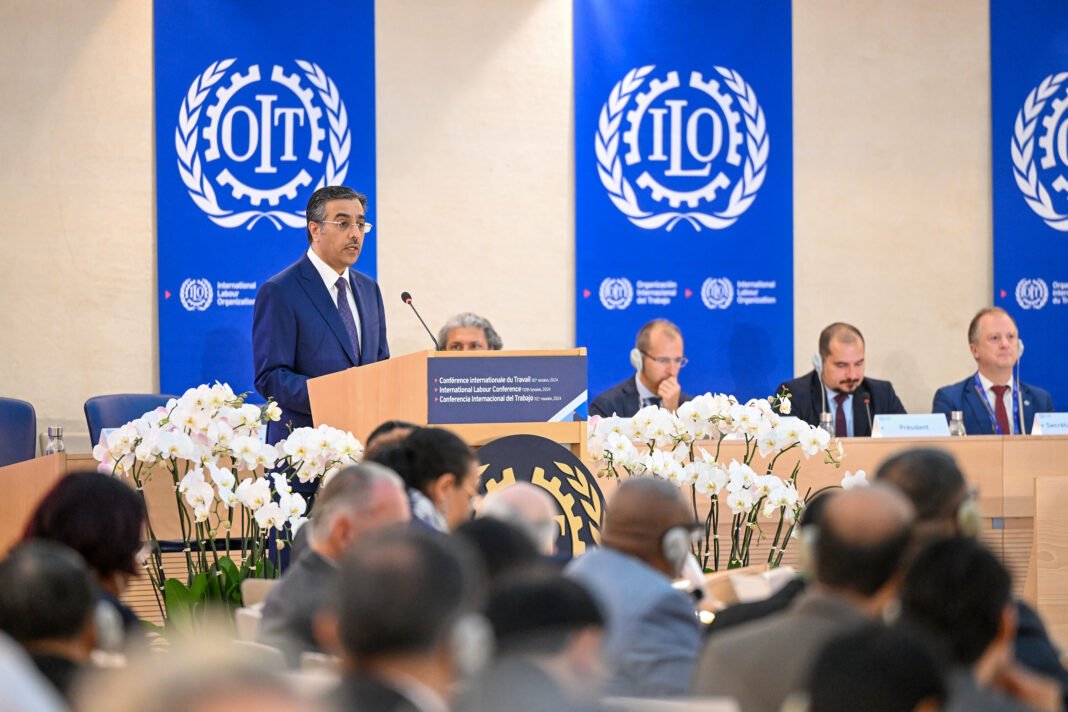The State of Qatar took an active role in the General Session of the 113th International Labour Conference (ILC), which was recently held in Geneva.
This high-level conference brought together ministers of Labour, worker representatives, and employer delegates from International Labour Organization (ILO) member states.
Minister of Labour, HE Dr. Ali bin Samikh Al Marri, led the Qatari delegation, which included senior officials from the Ministry of Labour. Through this participation, Qatar reaffirmed its ongoing commitment to international dialogue and cooperation on labour-related issues.
In his address to the conference, Dr. Al Marri emphasized the importance of Qatar labour market reforms introduced in recent years.
He noted that the reforms target multiple areas, especially strengthening legislation and improving occupational health and safety conditions across various sectors.
Furthermore, Qatar has rolled out extensive awareness and training programmes for workers and inspectors alike. These efforts aim to raise standards and ensure consistent enforcement of labour laws.
As a result, the country has made significant strides in protecting workers’ rights and enhancing workplace environments.
Notably, Dr. Al Marri also pointed to the strong collaboration between Qatar and the ILO. These partnerships, he said, have led to the promotion of decent work practices, particularly in sectors with high demand and visibility.
Moreover, the minister praised the ILO for its dedication to global labour development. He expressed appreciation for the Director-General’s report, describing it as an honest reflection of structural challenges currently facing labour markets.
In addition, Dr. Al Marri underlined the importance of democratic values, fairness, and inclusivity when building resilient labour systems. He called for the enhancement of social dialogue mechanisms to help develop effective and inclusive solutions.
Overall, Qatar’s participation in the conference demonstrated its firm dedication to shaping a modern, fair, and future-ready labour market through strategic reform and international collaboration.





